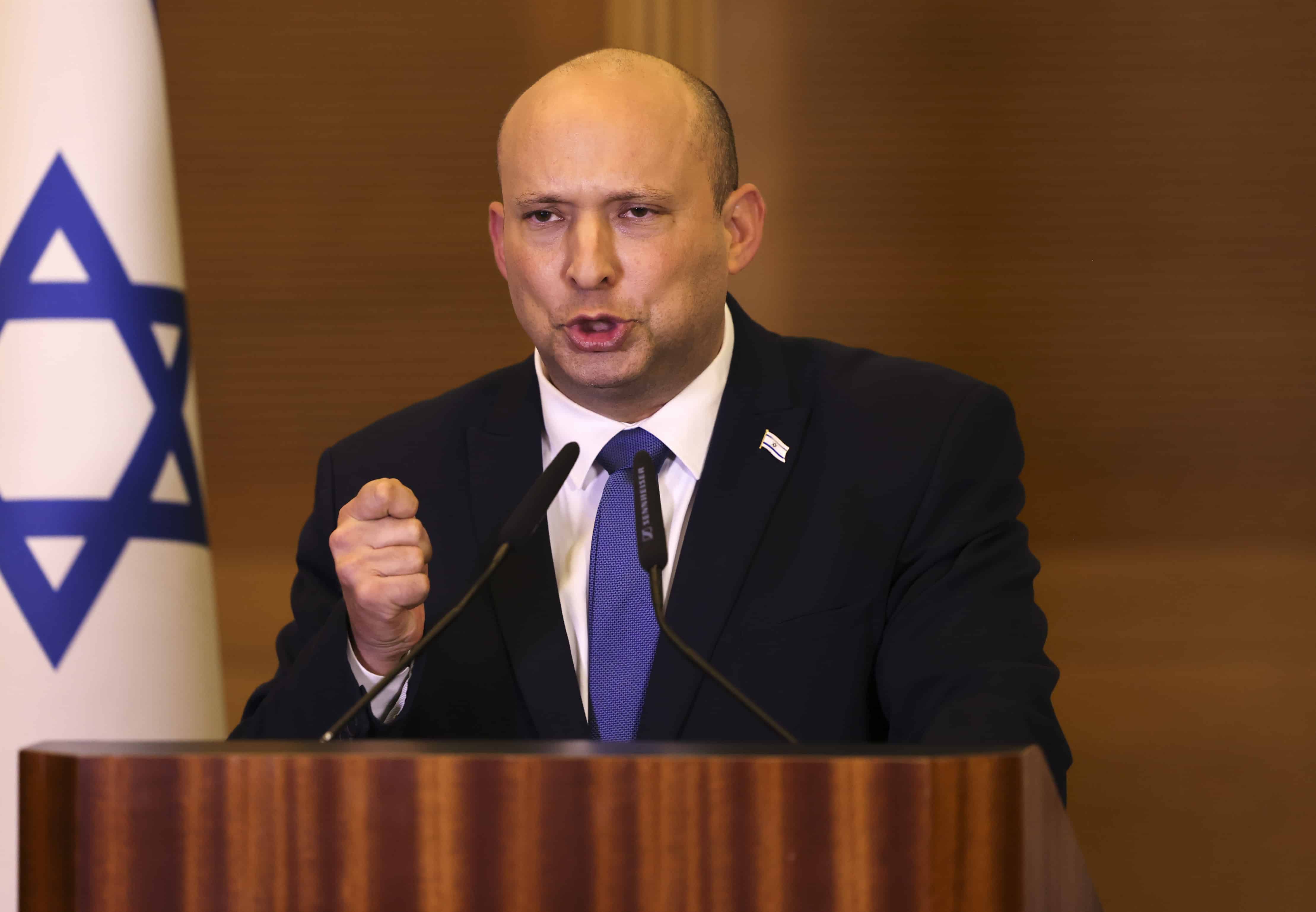Israel’s Prime Minister Naftali Bennett said Wednesday he would not stand in upcoming elections, as parliament postponed a vote to dissolve itself and force the country’s fifth vote in less than four years.
The premier, who conceded last week that his eight-party alliance which took office a year ago was no longer tenable, is due to hand power to Foreign Minister Yair Lapid, who will lead a caretaker government into polls that could come as soon as October.
Final approval of the dissolution bill was initially expected by midnight but was postponed to Thursday as coalition and opposition lawmakers sparred over last-minute legislative details, several sources familiar with the parliamentary talks told AFP, requesting anonymity.
“In a short while I’ll end my tenure as prime minister of Israel,” said Bennett, who will stay on as alternate premier in Lapid’s interim government.
“I do not intend to run in the upcoming elections, but I will remain a loyal soldier of this country,” he added, announcing that his long-time political partner and current interior minister, Ayelet Shaked, would take over the leadership of their religious, nationalist Yamina party.
Last-minute shock announcements to avert elections are not impossible given Israel’s volatile political climate, but it appeared almost certain the country was heading back to the polls, extending the worst political crisis in the Jewish state’s 74-year history.
‘Dark forces’
Former prime minister Benjamin Netanyahu has promised that his own alliance of right-wingers, ultra-nationalists and ultra-Orthodox Jewish parties will win the upcoming vote, but polls show that he may also struggle to rally a parliamentary majority.
Netanyahu’s main challenger will likely be long-time foe Lapid, a former celebrity news anchor who has surprised many since being dismissed as a lightweight when he entered politics a decade ago.
Bennett’s motley alliance formed with Lapid in June 2021 offered a reprieve from an unprecedented era of political gridlock, ending Netanyahu’s record 12 consecutive years in power and passing Israel’s first state budget since 2018.
As pair announced plans to end their coalition last week, Lapid sought to cast Netanyahu’s potential return to office as a national threat.
“What we need to do today is go back to the concept of Israeli unity. Not to let dark forces tear us apart from within,” Lapid said.
If the dissolution bill passes Thursday, Lapid will take over as premier when the clock ticks to Friday, in accordance with the power-sharing deal he agreed with Bennett.
Bennett led a coalition of right-wingers, centrists, doves and Islamists from the Raam faction, which made history by becoming the first Arab party to support an Israeli government since the Jewish state’s creation.
But the alliance, united by its desire to oust Netanyahu and break a damaging cycle of inconclusive elections, was imperilled from the outset by its ideological divides.
Time to ‘step back’
Bennett said the final straw was a failure to renew a measure that ensures the roughly 475,000 Jewish settlers in the occupied West Bank live under Israeli law.








